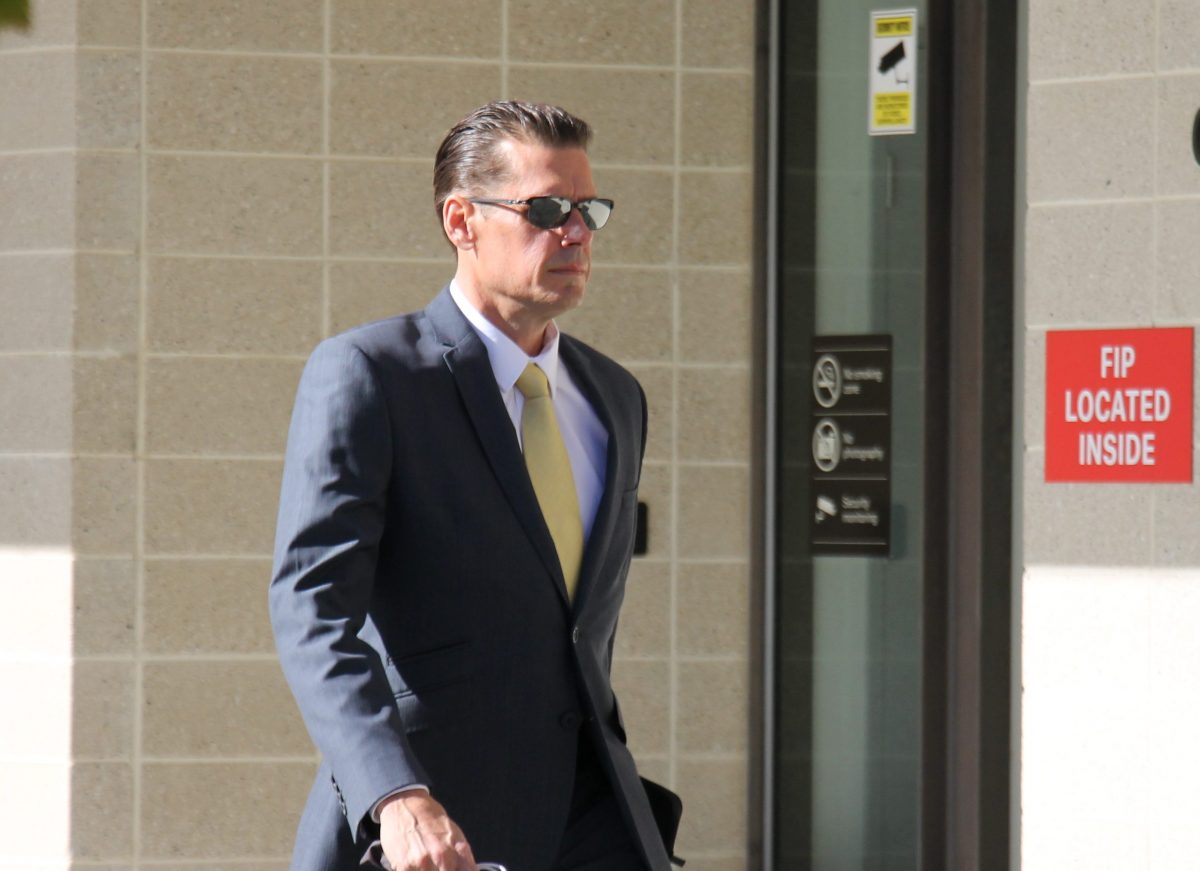
Aaron Alexander approaches court to learn the result of his appeal on Friday. Photo: Albert McKnight.
While ex-Gungahlin United Football Club president Aaron Alexander has had a partial win in the appeals court, he has been told he still must be sentenced on the majority of his theft charges.
Last year, the ACT Magistrates Court’s Magistrate Glenn Theakston found Aaron Alexander guilty of 65 counts of theft.
These charges allegedly related to stealing more than $31,000 from his football club to fund car lease payments, make personal purchases and top up his own bank account.
However, before he was sentenced, he appealed his convictions to the ACT Supreme Court and when Acting Justice Peter Berman announced the result on Friday (5 May), he partly allowed the appeal and quashed 17 of his charges.
The acting justice confirmed the remainder of the charges, leaving Alexander with 48 theft convictions.
This means he no longer faces alleged transactions worth over $7000, but will still be sentenced on just over $23,500 worth of purchases.
In Acting Justice Berman’s published decision, he said Alexander operated the club’s main bank account from September 2017 to June 2018 and had a debit card attached to a separate club account.
Alexander argued five grounds of appeal, including claiming that the findings of guilty for most of the charges were unreasonable and could not be supported by the evidence.
While Acting Justice Berman dismissed most of the grounds, he said he was satisfied Alexander was guilty on some of the charges, but he would not have found him guilty on others.
For instance, he was acquitted on all charges relating to purchases at Bunnings, as the acting justice said he could not be satisfied that every one of the Bunnings charges related to an illegitimate transfer, even though he was satisfied that not all of these transfers were legitimate.
“It is not reasonably possible that all of the five Bunnings charges relate to a legitimate transfer, but it is reasonably possible that out of the five Bunnings charges, one relates to a legitimate transfer,” he said.
When it came to several other electronic transfers, while he said he had no doubt that not all of them represented legitimate reimbursements, he was unable to point to any particular one and say he was satisfied beyond reasonable doubt that it was not a legitimate reimbursement.
“Suspicion, even grave suspicion, is no substitute for proof beyond reasonable doubt,” he said.
Alexander must appear before the Magistrates Court for sentencing in the future.
Original Article published by Albert McKnight on Riotact.






